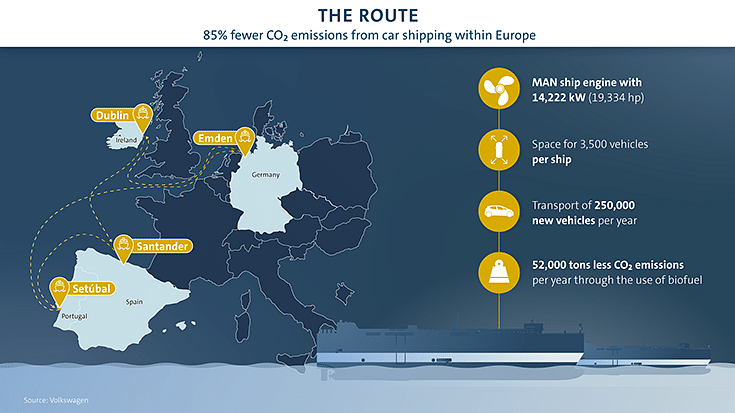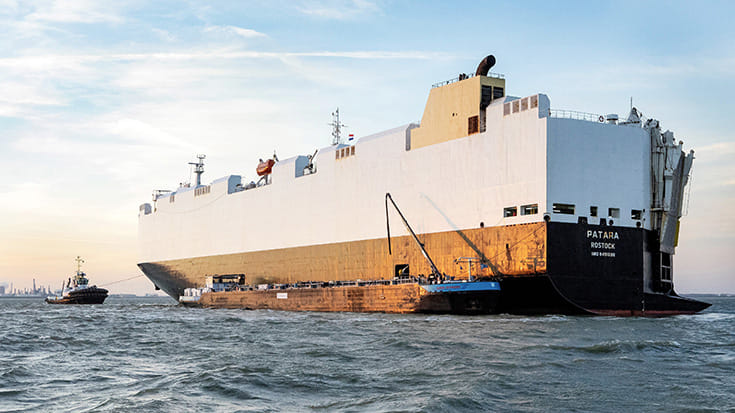Volkswagen powers car freighters with used oil from restaurants
Volkswagen Group Logistics uses certified fuel from vegetable residues for new car shipments on marine routes.
The Volkswagen Group’s vehicle logistics arm is taking to deploying new climate protection operations. In future, Volkswagen Group Logistics will be using certified fuel from vegetable residues for certain new car shipments via marine routes.
The fuel is produced from materials such as used oil from restaurants and the food industry. The first car freighter was re-fuelled for the first time with this oil in mid-November 2020 and a second ship is due to follow at the beginning of 2021.
“We are the first automaker to make widespread use of this fuel. This way, we reuse waste oil in an environmentally compatible way. With 85 percent lower CO2 emissions than with conventional fossil fuels, the contribution to climate protection is enormous,” says Thomas Zernechel, Head of Volkswagen Group Logistics.

For European shipments, Volkswagen Group Logistics continuously charters two vessels which carry up to 3,500 vehicles on a route from Emden via Dublin (Ireland), Santander (Spain) and Setubal (Portugal) back to Emden about 50 times per year. In the course of their journeys, they carry about 250,000 new vehicles of the Audi, Seat, Skoda, Volkswagen Passenger Cars and Volkswagen Commercial Vehicles brands every year.

The two ships, which are both 180 metres long, are each powered by an MAN marine diesel with more than 19,000 PS (14,220 kW). In future, the two ships are to be refuelled at sea off the coast of Vlissingen (Netherlands) with alternative fuel supplied by the Dutch company GoodFuels. This way, the CO2 emissions of the two conventional vessels along their route will be reduced by more than 85 percent – from over 60,000 to about 9,000 tonnes per year. In addition, sulphur oxide emissions will be almost completely avoided.
This change is part of a strategy to make VW Group Logistics even greener: another element is the use of liquefied natural gas (LNG) to power car freighters. These vessels travel between Europe, North America and Latin America. Furthermore, all rail shipments in Germany with DB Cargo are being changed over to eco-power. “This way, Volkswagen Group Logistics is helping the Group achieve net carbon neutrality by 2050,” says Zernechel.
ALSO READ
Volkswagen puts the world's first LNG vehicle transporter into service
RELATED ARTICLES
Autoliv Plans JV for Advanced Safety Electronics With China’s HSAE
The new joint venture, which is to be located strategically near Shanghai and close to several existing Autoliv sites in...
JLR to Restart Production Over a Month After September Hacking
Manufacturing operations at the Tata Group-owned British luxury car and SUV manufacturer were shut down following a cybe...
BYD UK Sales Jump 880% in September to 11,271 units
Sales record sets the UK apart as the largest international market for BYD outside of China for the first time. The Seal...






 By Autocar Professional Bureau
By Autocar Professional Bureau
 26 Nov 2020
26 Nov 2020
 3753 Views
3753 Views












 Ajit Dalvi
Ajit Dalvi




